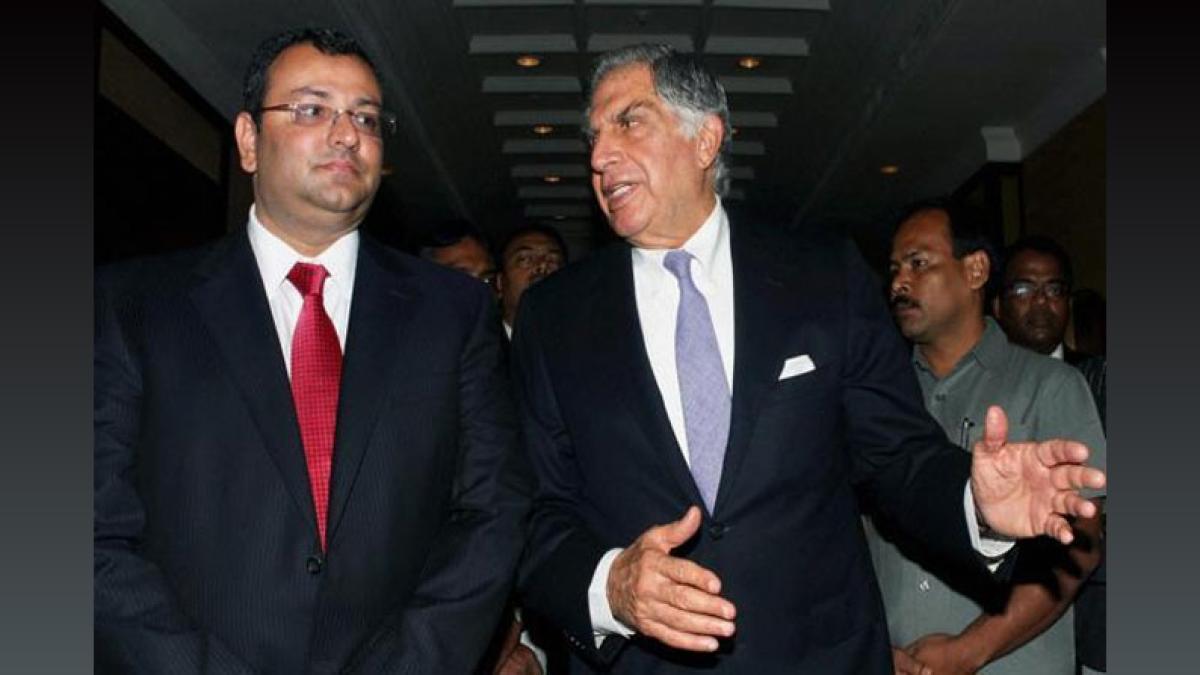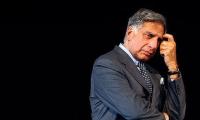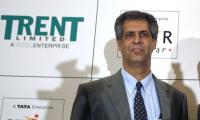Ratan Tata Had Doubts About Cyrus Mistry's Suitability as Tata Sons Chairman: Book
A new book reveals Ratan Tata's reservations about Cyrus Mistry's leadership as Tata Sons chairman, despite initially approving his selection. The book highlights Tata's concerns about Mistry's 'sharp interventions' and potential conflict with the group's values.

New Delhi, Oct 26 (PTI) Ratan Tata began having second thoughts about Cyrus Mistry's 'suitability' as chairman-designate of Tata Sons by the end of the first year of apprenticeship under him to give insights and hands-on experience on how to run the group, even before the latter formally taking over the position fully, according to a newly released book.
Tata 'suffered more' than Mistry 'in a way' from the decision to sack his successor as Chairman of Tata Sons in October 2016, claimed a biography of the late veteran industrialist and philanthropist -- Ratan Tata A Life -- authored by Thomas Mathew and published by HarperCollins Publishers.
Late Mistry was chosen in 2011 after a global search by a selection committee to succeed Tata -- who retired as Chairman of Tata Sons in December 2012 -- with his full endorsement, despite apprehensions and reservations expressed by group veterans. For a year Mistry was the 'Chairman designate' before he took over as Chairman of Tata Sons after Tata's retirement.
While approving the recommendation of the selection panel, Tata had two observations while nodding Mistry as his successor. He wanted Mistry, who was then the MD of Shapoorji Pallonji Group with interests similar to the Tatas such as construction, real estate, textiles, engineering goods, and power among others to 'severe all relations' with the company by creating a separation that would be 'legal and tenable'.
The second was that for a year, Mistry would do 'parallel running' with Tata to ensure that he got insights and hands-on experience on how to run the Tata Group, as per the book, based on interviews with Tata himself, his family, friends, former colleagues and business associates.
"Ratan avers that though his interactions with Mistry were largely limited to Tata Sons board meetings, he was impressed with him. When Ratan was able to observe him at close quarters while Mistry was the deputy Chairman, he was reassured," wrote the author, a retired bureaucrat.
"But by the end of the one year of parallel running, Ratan began to have second thoughts about Mistry's suitability as the chairman-designate. He recalls that some of the latter's 'sharp interventions' had surprised him.
Deep down, he pondered if it would be prudent to appoint a man whose ethos could potentially conflict with that of the Tatas.
Quoting Tata, the book said, "Mistry had a particular talent to identify potential pitfalls in strategies" but he was "not sure if Mistry would use these qualities for the benefit of Tata Sons and whether he would always uphold the fundamental values of the group".
While Tata later lamented that he did not have the opportunity to fully assess the new chairman (Mistry), many of his critics blame him for bringing the situation upon himself by choosing to stay away from the selection committee.
Mistry, who took over as Tata Sons Chairman after Tata retired on December 28, 2012, was sacked on October 24, 2016 as Tata Trust had "lost confidence in him for a variety of reasons" triggering a bitter fallout leading to boardroom and legal battles.
Yet, "Mistry's removal 'in some way' was the 'most painful and difficult thing for Ratan", says the book quoting Nitin Nohria, former dean of Harvard Business School, who was chosen by Tata to help Mistry to be successful.
Similarly, quoting Venu Srinivasan, director Tata Sons and Chairman Emeritus TVS Motor Company, the book said, "It was a very hard decision for Ratan to take; I think it took a lot out of him because he had to 'stand in many ways for things that he does not stand for'.".
"Ratan suffered more than Cyrus in a way, people may not quite understand or accept it and for Cyrus it is certainly something he would not accept or believe but the truth is I think he (Tata) took a lot of suffering, on that score," he added.
According to the book, Tata wished that Mistry "should have been more dignified and graciously resigned after it became clear that he had lost the confidence of the directors".
"Even for me, firing him this way was not our style of doing things. Our lawyers said that if it is not a surgical strike, he would go to the court and litigations would follow," it said quoting Tata.
Tata 'suffered more' than Mistry 'in a way' from the decision to sack his successor as Chairman of Tata Sons in October 2016, claimed a biography of the late veteran industrialist and philanthropist -- Ratan Tata A Life -- authored by Thomas Mathew and published by HarperCollins Publishers.
Late Mistry was chosen in 2011 after a global search by a selection committee to succeed Tata -- who retired as Chairman of Tata Sons in December 2012 -- with his full endorsement, despite apprehensions and reservations expressed by group veterans. For a year Mistry was the 'Chairman designate' before he took over as Chairman of Tata Sons after Tata's retirement.
While approving the recommendation of the selection panel, Tata had two observations while nodding Mistry as his successor. He wanted Mistry, who was then the MD of Shapoorji Pallonji Group with interests similar to the Tatas such as construction, real estate, textiles, engineering goods, and power among others to 'severe all relations' with the company by creating a separation that would be 'legal and tenable'.
The second was that for a year, Mistry would do 'parallel running' with Tata to ensure that he got insights and hands-on experience on how to run the Tata Group, as per the book, based on interviews with Tata himself, his family, friends, former colleagues and business associates.
"Ratan avers that though his interactions with Mistry were largely limited to Tata Sons board meetings, he was impressed with him. When Ratan was able to observe him at close quarters while Mistry was the deputy Chairman, he was reassured," wrote the author, a retired bureaucrat.
"But by the end of the one year of parallel running, Ratan began to have second thoughts about Mistry's suitability as the chairman-designate. He recalls that some of the latter's 'sharp interventions' had surprised him.
Deep down, he pondered if it would be prudent to appoint a man whose ethos could potentially conflict with that of the Tatas.
Quoting Tata, the book said, "Mistry had a particular talent to identify potential pitfalls in strategies" but he was "not sure if Mistry would use these qualities for the benefit of Tata Sons and whether he would always uphold the fundamental values of the group".
While Tata later lamented that he did not have the opportunity to fully assess the new chairman (Mistry), many of his critics blame him for bringing the situation upon himself by choosing to stay away from the selection committee.
Mistry, who took over as Tata Sons Chairman after Tata retired on December 28, 2012, was sacked on October 24, 2016 as Tata Trust had "lost confidence in him for a variety of reasons" triggering a bitter fallout leading to boardroom and legal battles.
Yet, "Mistry's removal 'in some way' was the 'most painful and difficult thing for Ratan", says the book quoting Nitin Nohria, former dean of Harvard Business School, who was chosen by Tata to help Mistry to be successful.
Similarly, quoting Venu Srinivasan, director Tata Sons and Chairman Emeritus TVS Motor Company, the book said, "It was a very hard decision for Ratan to take; I think it took a lot out of him because he had to 'stand in many ways for things that he does not stand for'.".
"Ratan suffered more than Cyrus in a way, people may not quite understand or accept it and for Cyrus it is certainly something he would not accept or believe but the truth is I think he (Tata) took a lot of suffering, on that score," he added.
According to the book, Tata wished that Mistry "should have been more dignified and graciously resigned after it became clear that he had lost the confidence of the directors".
"Even for me, firing him this way was not our style of doing things. Our lawyers said that if it is not a surgical strike, he would go to the court and litigations would follow," it said quoting Tata.
You May Like To Read
TODAY'S MOST TRADED COMPANIES
- Company Name
- Price
- Volume
- Vodafone-Idea-L
- 11.57 ( -0.69)
- 50835498
- AvanceTechnologies
- 1.16 (+ 4.50)
- 29252637
- Mehai-Technology
- 1.68 ( -2.89)
- 25644916
- Harshil-Agrotech
- 0.60 ( -1.64)
- 18346634
- Spright-Agro
- 0.77 ( -4.94)
- 17017770





